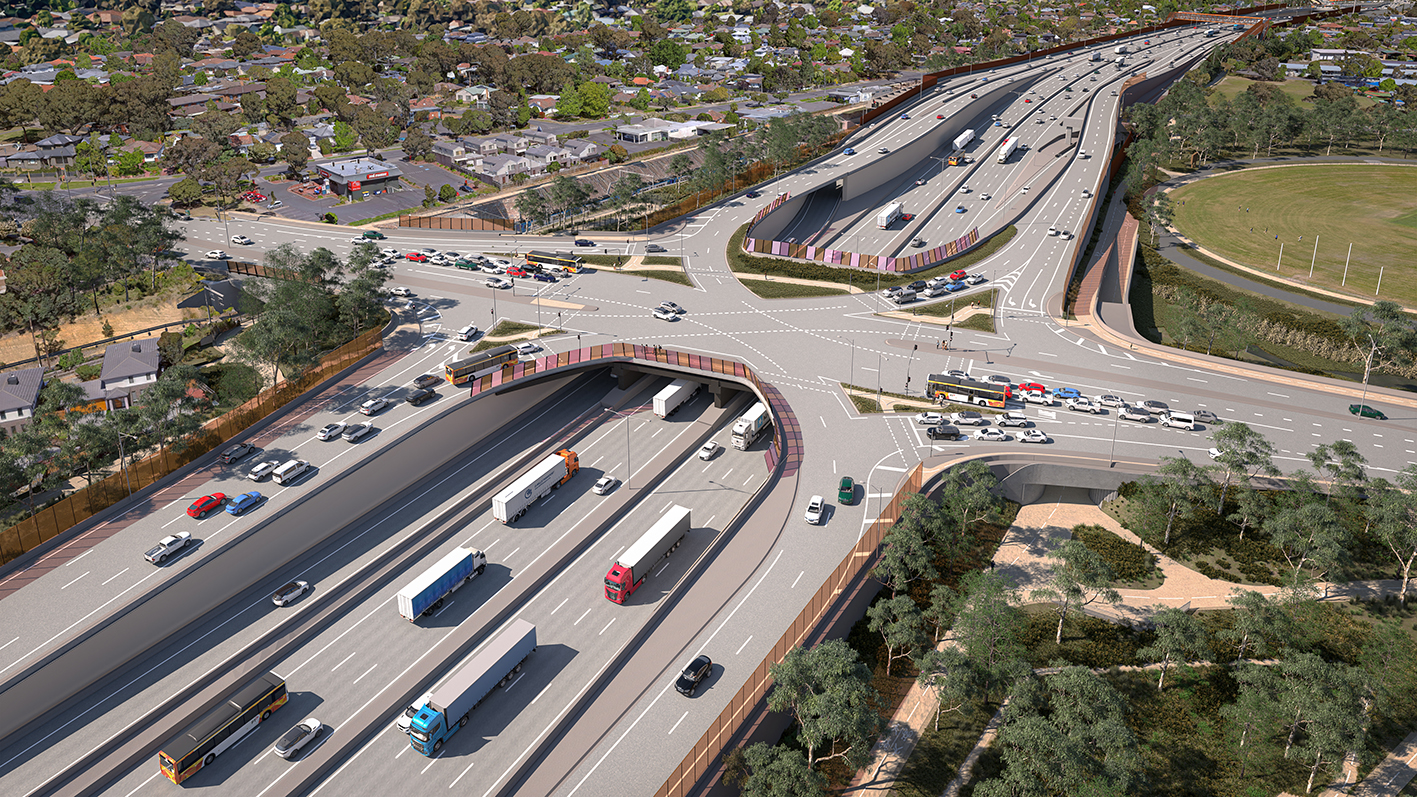Leading the way in sustainable procurement on infrastructure projects
27th Mar 2024
This month, we’re delighted to feature Ross Brookshaw, Sustainability Manager of the M80 Ring Road Alliance, as our guest author. Ross brings a wealth of expertise to the discussion on sustainability and infrastructure projects, drawing on his experience with the M80 Ring Road Completion project as a case study. Through his insights, Ross highlights the important role of Environmental Product Declarations in propelling positive change in the way infrastructure projects are developed and delivered.

Ross Brookshaw, Sustainability Manager, M80 Ring Road Alliance
In the pursuit of sustainable development, Environmental Product Declarations (EPDs) are emerging as a crucial tool that can fundamentally shift the way major infrastructure projects are developed and delivered. These declarations provide a comprehensive insight into the environmental impact of products, helping to foster greater transparency, more informed decision-making, and improved supply chain management, as well as helping facilitate circularity of materials.
The M80 Ring Road Completion is part of the Victorian Government’s Big Build program and the biggest ever investment in Melbourne’s north-east. Together with the North East Link tunnels and Eastern Freeway Upgrades, it will help take 15,000 trucks off local roads a day and reduce travel times by up to 35 minutes.
The M80 Ring Road Alliance (comprising ACCIONA, MACA, and AECOM) is aiming to change how infrastructure projects are delivered, by delivering a major project with a significantly lower carbon footprint. The M80 Ring Road Completion project has committed to a 28% reduction in the carbon footprint of materials used during construction. This target is aligned to the project’s environmental goals as well as the United Nations Sustainable Development Goals (specifically Goal 13 Climate Action; Goal 12 Responsible Consumption and Production; and Goal 11 Sustainable Cities and Communities; Goal 9 Industry, Innovation and Infrastructure).
The M80 Ring Road Alliance is embracing the use of EPDs not just as a choice but as a necessity for more responsible, sustainable practices in infrastructure projects. The Alliance has set an ambitious target: to have between 40- 60% of materials (by dollar value) supplied to the project to have an EPD. This industry leading approach will encourage the use of more sustainable products across the project, and within industry sectors, and will create greater transparency and accuracy in how our project is achieving our carbon reduction targets.

M80 Ring Road Completion. Artist’s impression of Grimshaw Street interchange, Watsonia North
Here are some of the ways in which EPDs are creating more responsible, sustainable practices within the construction industry and helping to fundamentally shift how infrastructure projects are delivered:
1. Transparency and credibility
One of the primary benefits of EPDs lies in their ability to offer transparency and credibility regarding a product’s environmental impacts. On the M80 Ring Road Completion our decisions can have consequences that span a lifetime, therefore having accurate data on a product’s environmental footprint becomes indispensable to our decision-making processes. As EPDs are independently verified they provide a solid foundation for product comparison, helping to establish a more accurate carbon footprint, rather than relying solely on information provided by suppliers.
2. Competitive advantage
The M80 Ring Road Alliance procurement team is empowered to make more informed decisions by using the results of the EPDs during the procurement process. Our procurement team can compare the environmental performance of products from different suppliers and prioritise sustainable products during the supplier selection process. Given that sustainability criteria can account for up to 30% of the tender process, suppliers with EPDs are able to gain a competitive edge. This strategy sends very clear signals to the market on the importance of sustainability on infrastructure projects.
3. Improved supply chain management
Beyond individual products, EPDs offer a tool for suppliers to evaluate the environmental impact of materials and processes throughout their entire supply chain. This holistic approach enables companies to make more sustainable choices in sourcing and production practices, from raw materials to logistics. This reduces the environmental footprint of individual products and contributes to the overall sustainability of the supply chain.
4. Circularity of materials
The incorporation of Material Circularity Indicators into EPDs aligns with the growing emphasis on circularity. This approach encourages the use of products designed for a longer lifespan and easy recyclability or repurposing. EPDs thus contribute to the realisation of circularity models, playing a crucial role in achieving the broader United Nations Sustainable Development Goals, specifically Goal 12 Responsible Consumption and Production.
5. Supporting smaller suppliers
The initial cost of producing an EPD can sometimes be seen as an impediment to smaller suppliers. The M80 Ring Road Alliance is passionate about the advantages of EPDs and is addressing this issue by providing practical support – in the way of financial assistance and expertise – to support smaller, suppliers to produce their own EPDs. This type of support will provide an important boost to smaller, innovative suppliers to showcase their sustainability credentials to the market and encourage greater innovation across all sections of the supply chain.
The adoption of EPDs is a strategic move that will aid the shift towards a more sustainable and responsible future and support a change in how infrastructure projects are delivered. These declarations provide the necessary independently verified data for the M80 Ring Road Alliance team to make decisions that align with the project’s own environmental goals and the United Nations Sustainable Development Goals. From supplier selection to supply chain management and product innovation, the impact of EPDs is far-reaching, making them an essential component in the toolkit of any organisation committed to sustainability in the infrastructure sector.
Author credit: Ross Brookshaw, Sustainability Manager of the M80 Ring Road Alliance.
For more information please visit:
Latest News
2,000 EPDs and Counting: A Milestone for Transparency
EPD Australasia has reached a major milestone with the publication of the 2,000th Environmental Product Declaration, reflecting the continued growth in demand for...
More Businesses, More EPDs
Massive growth from Dec 2024 to Apr 2025, with sixteen businesses joining the programme and over one thousand new EPDs published. EPD Australasia...
Updated EPD Australasia Logo
The EPD Australasia logo has been refreshed and is now available for download and use on EPDs. In common with the...